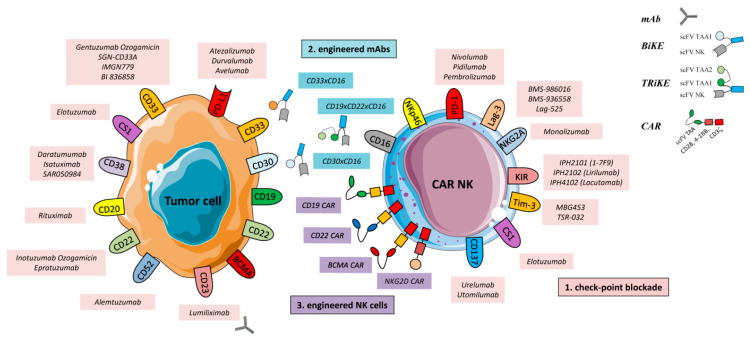Figure 2.
Overview of emerging strategies to boost or restore NK cell-based anti-tumor response in hematological malignancies. (1) Checkpoint blockade. MAb-based therapy is an approach aimed to block the triggering of inhibitory receptors (as PD-1, NKG2A, and KIRs) expressed on NK cells and avoid tumor escape. Importantly, checkpoint inhibition can be also used to impair tumor cell functions through specific mAbs as Durvalumab (anti-PD-L1), Daratumumab (anti-CD38), or Elotuzumab (anti-CS1). (2) Engineered mAbs. BiKEs and TRiKEs bind to activating receptors (e.g., CD16) expressed on NK cells and several antigens (e.g., CD19, CD22, CD33, CD38, and CD123) expressed on tumor cells. Engineered mAbs facilitate the formation of an immunological synapse (IS) and improve ADCC activity by redirecting NK cells to tumor cells.(3) CAR NK cells are genetically modified to recognize specific antigens expressed on tumor cells. The consequence of the CAR activation is the formation of a strong IS, followed by the release of cytotoxic granules as perforin and granzymes and eventually the target cell killing. Abbreviations used: ADCC, antibody-dependent cell-mediated cytotoxicity; mAbs, monoclonal antibodies; BiKEs, bi-specific killing cell engagers; TRiKEs, tri-specific killer cell engagers; CARs, chimeric antigen receptors.

